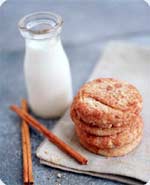| How to pack food for the school and college
Many children today are unable to eat breakfast before they leave for school. This is followed by a snack for lunch and the child comes home at 4pm , tired and hungry and sits down to a huge meal. There after he is unable to eat a proper dinner. This imbalance of all the 3 meals can affect both mental and physical growth and development.
Latest research shows that those who eat a good breakfast of carbohydrate and protein can prevent chances of obesity and this helps to keep metabolism high.
Please note that it is very unhealthy to begin your day without breakfast. A child on an empty stomach will not be able to concentrate in class and will not be able to think clearly. He may also be moody and bad tempered with other children in this state. Even if you have to wake up your child 15minutes earlier you must see that he does not leave the house without eating.
 Here are some quick breakfast options. A glass of milk with 2 slices of bread or toast. A cup of cornflakes with a glass of milk. Oats or ragi porridge with a glass of milk. Bread and egg, bread and cheese, idli or dosa and sambar, are all quick to eat foods. If this is not possible at least a glass of milk and a small banana is the minimum food required to start the day. This however is not breakfast and has to be followed by the breakfast being packed and sent to school to be eaten in the 10am break. This means that the 10am break is a sandwich or 2 idliís, dosa or chapathi and not a packet of chips or biscuits. Ideally I would recommend the proper breakfast at home and then some fruit and snack for the 10am break. Here are some quick breakfast options. A glass of milk with 2 slices of bread or toast. A cup of cornflakes with a glass of milk. Oats or ragi porridge with a glass of milk. Bread and egg, bread and cheese, idli or dosa and sambar, are all quick to eat foods. If this is not possible at least a glass of milk and a small banana is the minimum food required to start the day. This however is not breakfast and has to be followed by the breakfast being packed and sent to school to be eaten in the 10am break. This means that the 10am break is a sandwich or 2 idliís, dosa or chapathi and not a packet of chips or biscuits. Ideally I would recommend the proper breakfast at home and then some fruit and snack for the 10am break.
Lunch tiffin also must be a properly balanced one. Many parents send biscuits, chips and other snacks as lunch. Some even give small children money to buy lunch from the canteen. The child usually chooses a packet of chips, a bar of chocolate or a pastry as lunch. They must learn from a young age that breakfast and lunch are proper meals and not get into the habit of light eating in the earlier part of the day and heavy eating in the evenings which is one of the major factors contributing to the great rise in incidents of obesity, diabetes, heart disease, etc.
Lunch suggestions- Rice, sambar and palya (cooked vegetables). Chapati, thick dhal and sabji. Lime rice or pulav with chole. Chapati rolled with vegetable and shredded non-veg. Chapati with egg and vegetable burggi (scramble), Noodles, vegetables and egg or paneer.Curd rice plus palya or sprouted moong.
4 pm is tea time and not lunch time so please do not serve lunch at this time. A glass of milk or curd lassi is a must and then biscuits or sandwiches may be eaten here. At 6pm after play a fruit is a must too. Then dinner is a balanced meal again. Roti or rice with dhal or pulses and a vegetable dish must be the base. Curds and non-veg can be added and a salad has to be served with dinner.
If making a continental dinner the balance must be right. Pasta must be served with some vegetable and white sauce, cheese or egg. Those sitting up late to study may have a fruit and milk later but please do not indulge in chocolates, cookies, ice-cream late at night.
Remember food should be distributed as breakfast + snack 40%, lunch + tea 40% and dinner 20%. If it is breakfast 0-10%, lunch 20% and dinner 70% you are paving the way for obesity and disease. The second big rule is to see that every meal is a carbohydrate and protein food combination. Bread, cereals, rice, chapathis etc., are the carbohydrate foods while, dhals and pules, milk, curd, cheese, egg and non veg foods are the main sources of protein.
|